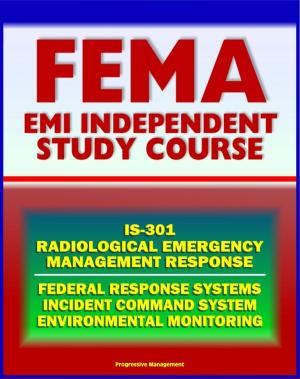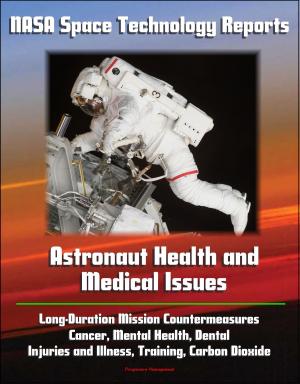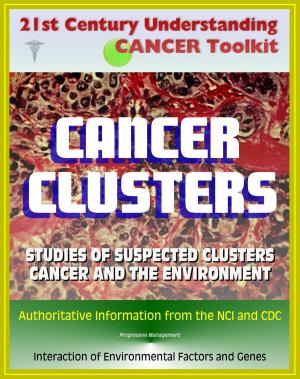21st Century Understanding Cancer Toolkit: Nutrition in Cancer Care, Eating Tips and Recipes for Cancer Patients, Food Suggestions, Dealing with Digestive Problems from Therapy
Nonfiction, Health & Well Being, Health, Ailments & Diseases, Cancer, Medical, Patient Care, Nutrition| Author: | Progressive Management | ISBN: | 9781458009227 |
| Publisher: | Progressive Management | Publication: | February 9, 2011 |
| Imprint: | Smashwords Edition | Language: | English |
| Author: | Progressive Management |
| ISBN: | 9781458009227 |
| Publisher: | Progressive Management |
| Publication: | February 9, 2011 |
| Imprint: | Smashwords Edition |
| Language: | English |
Authoritative information, tips, and practical advice from the nation's cancer experts about nutrition in cancer care, providing coverage of all aspects of this important part of cancer treatment. Starting with the basics, and advancing to detailed patient-oriented information, this comprehensive compilation gives empowered patients, families, and caregivers the information they need to understand nutrition and cancer. Digestive problems related to chemotherapy, radiation treatment, and surgery are fully covered; there is information about anorexia and cancer cachexia, enteral and parenteral nutrition, supplements, and much more. In addition to easy-to-read discussions, there is substantial advanced material for health care professionals. Conveniently organized contents include: Eating Hints - Before, During, and After Cancer Treatment * Down Home Healthy Cooking: Recipes and Tips for Healthy Cooking * Managing Chemotherapy Side Effects - Appetite Changes * Nutrition in Cancer Care - Patient Version and Healthcare Professional Version * For Cancer-Related Appetite Loss, Cannabis is No Better than Placebo * Hydrazine Sulfate * Supplement: General Cancer Information And Resources. An extensive supplement provides background data on cancer; information on how to find resources in your own community; questions and answers about cancer; cancer information sources; cancer in the environment - what you need to know and what you can do; and facing forward - life after cancer treatment. * Coverage includes: Overview of Nutrition in Cancer Care * Nutrition Therapy in Cancer Care * Methods of Nutrition Care * Effects of Cancer Treatment on Nutrition * Treatment of Symptoms * Food and Drug Interactions. Nutrition therapy is used to help cancer patients get the nutrients they need to keep up their body weight and strength, keep body tissue healthy, and fight infection. Eating habits that are good for cancer patients can be very different from the usual healthy eating guidelines. Healthy eating habits and good nutrition can help patients deal with the effects of cancer and its treatment. Some cancer treatments work better when the patient is well nourished and gets enough calories and protein in the diet. Patients who are well nourished may have a better prognosis (chance of recovery) and quality of life. Cancer can change the way the body uses food. Some tumors make chemicals that change the way the body uses certain nutrients. The body's use of protein, carbohydrates, and fat may be affected, especially by tumors of the stomach or intestines. A patient may seem to be eating enough, but the body may not be able to absorb all the nutrients from the food. Cancer and cancer treatments may cause effects related to nutrition. For many patients, the effects of cancer and cancer treatments make it hard to eat well. Cancer treatments that affect nutrition include: Surgery, chemotherapy, radiation therapy, immunotherapy, stem cell transplant. * This is a privately authored news service and educational publication of Progressive Management. For over a quarter of a century, our news, educational, technical, scientific, and medical publications have made unique and valuable references accessible to all people. Our e-books put knowledge at your fingertips, and an expert in your pocket!
Authoritative information, tips, and practical advice from the nation's cancer experts about nutrition in cancer care, providing coverage of all aspects of this important part of cancer treatment. Starting with the basics, and advancing to detailed patient-oriented information, this comprehensive compilation gives empowered patients, families, and caregivers the information they need to understand nutrition and cancer. Digestive problems related to chemotherapy, radiation treatment, and surgery are fully covered; there is information about anorexia and cancer cachexia, enteral and parenteral nutrition, supplements, and much more. In addition to easy-to-read discussions, there is substantial advanced material for health care professionals. Conveniently organized contents include: Eating Hints - Before, During, and After Cancer Treatment * Down Home Healthy Cooking: Recipes and Tips for Healthy Cooking * Managing Chemotherapy Side Effects - Appetite Changes * Nutrition in Cancer Care - Patient Version and Healthcare Professional Version * For Cancer-Related Appetite Loss, Cannabis is No Better than Placebo * Hydrazine Sulfate * Supplement: General Cancer Information And Resources. An extensive supplement provides background data on cancer; information on how to find resources in your own community; questions and answers about cancer; cancer information sources; cancer in the environment - what you need to know and what you can do; and facing forward - life after cancer treatment. * Coverage includes: Overview of Nutrition in Cancer Care * Nutrition Therapy in Cancer Care * Methods of Nutrition Care * Effects of Cancer Treatment on Nutrition * Treatment of Symptoms * Food and Drug Interactions. Nutrition therapy is used to help cancer patients get the nutrients they need to keep up their body weight and strength, keep body tissue healthy, and fight infection. Eating habits that are good for cancer patients can be very different from the usual healthy eating guidelines. Healthy eating habits and good nutrition can help patients deal with the effects of cancer and its treatment. Some cancer treatments work better when the patient is well nourished and gets enough calories and protein in the diet. Patients who are well nourished may have a better prognosis (chance of recovery) and quality of life. Cancer can change the way the body uses food. Some tumors make chemicals that change the way the body uses certain nutrients. The body's use of protein, carbohydrates, and fat may be affected, especially by tumors of the stomach or intestines. A patient may seem to be eating enough, but the body may not be able to absorb all the nutrients from the food. Cancer and cancer treatments may cause effects related to nutrition. For many patients, the effects of cancer and cancer treatments make it hard to eat well. Cancer treatments that affect nutrition include: Surgery, chemotherapy, radiation therapy, immunotherapy, stem cell transplant. * This is a privately authored news service and educational publication of Progressive Management. For over a quarter of a century, our news, educational, technical, scientific, and medical publications have made unique and valuable references accessible to all people. Our e-books put knowledge at your fingertips, and an expert in your pocket!















